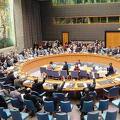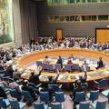
Rights Groups Highlight Continuing Abuses in the North Caucasus
Publication: Eurasia Daily Monitor Volume: 6 Issue: 108

Human Rights Watch, the Memorial Human Rights Center, and Russian Justice Initiative said in a joint statement on June 4 that the number of European Court of Human Rights judgments holding Russia responsible for serious violations of human rights in Chechnya has surpassed 100, but the Russian government has failed to take appropriate steps to remedy them. The New-York based human rights group and the two Russian rights organizations said that the Strasbourg-based court’s judgments "condemn Russia for its refusal to investigate violations properly and failure to hold perpetrators accountable, including for such grave violations as extrajudicial executions, enforced disappearances and torture."
According to the three groups, in 102 of the 104 Chechnya judgments, the European Court of Human Rights ruled that Russia failed to conduct an effective investigation into the violations, even though in most of the cases there was overwhelming evidence that state agents were responsible. Investigations are routinely suspended allegedly because of the "impossibility of identifying the perpetrators," Human Rights Watch, the Memorial Human Rights Center, and Russian Justice Initiative said.
The three rights groups noted that since its first Chechnya judgments in February 2005, the European Court of Human Rights has held Russia responsible for the deaths of more than 200 people, mainly through killings and disappearances carried out by Russian forces in Chechnya. At least 300 more cases concerning human rights violations in Chechnya and other North Caucasus republics are pending before the court.
Human Rights Watch, the Memorial Human Rights Center, and Russian Justice Initiative called on the Russian government, among other things, to re-open investigations in those cases where the European Court of Human Rights has determined that prior investigations were inadequate and "conduct them in a manner that ensures they are meaningful and effective, resulting in those responsible for violations being brought to justice"; to review and revise domestic legislation and regulations regarding the use of force by military or security forces to ensure their compliance with human rights law; and conduct an "in-depth inquiry" into the conduct of investigations of abuses committed by military servicemen, police, and intelligence officials and other forces in Chechnya "to establish why these investigations are so ineffective" (www.hrw.org, June 4).
The London-based human rights group Amnesty International has also been calling attention to the human rights situation in the North Caucasus. The group stated in a 16-page memorandum on human rights in Russia released late last month that rights violations, including disappearances, ill-treatment and unfair trials are still committed with "impunity" in the North Caucasus (Reuters, May 28).
Amnesty’s researcher in Russia, Friederike Behr, told the Kavkazky Uzel website that there has been no let up in instability and violence in the North Caucasus, particularly in Chechnya, Ingushetia, Dagestan and Kabardino-Balkaria. According to Amnesty International, armed opposition groups have killed dozens of policemen and local officials in attacks in Dagestan, Chechnya and Ingushetia, while law enforcement and security personnel in the three republics have been responsible for extra-judicial detentions and killings.
Like Human Rights Watch, the Memorial Human Rights Center, and Russian Justice Initiative, Amnesty International has expressed concern that such abuses are not properly investigated. Behr told Kavkazky Uzel that Amnesty’s attempts to get information on the human rights situation in the North Caucasus encounter constant difficulties, including a lack of cooperation on the part of local authorities, which means that the group depends on the "active cooperation" of local human rights groups operating in the region, including Memorial and the Chechen Committee for National Salvation (Kavkazky Uzel, June 4).
In a fresh illustration of the problems in the North Caucasus highlighted by the human rights groups, Kavkazky Uzel reported earlier this week that Ismail Khamkhoev, a 39-year-old resident of the village of Ordzhonikidzevskaya, Ingushetia, who was abducted from his home by unidentified men wearing ski-masks and camouflage uniforms on April 28, had been found dead in Chechnya. According to the independent Ingushetia.org website, Khmakhoev had been found dead and with signs of torture in Chechnya’s Urus-Martan district a day after his kidnapping and his body had remained in the district’s morgue for more than a month.
Khamkhoev’s wife Lida, who had appealed to local authorities and human rights groups for help following her husband’s abduction, reported that her home had been searched in November 2008 by federal security forces and that documents had been seized during the raid, but that she was subsequently told by local police that the search had been conducted by Federal Security Service (FSB) personnel "by mistake" (Kavkazky Uzel, June 3).
Meanwhile, another kidnapping victim in Ingushetia, 28-year-old Idris Tsizdoev, who was abducted from his home in the city of Malgobek by 10-12 armed men wearing camouflage uniforms and masks on May 26, remains missing (Kavkazky Uzel, June 5).
Nor has there been a letup in insurgent attacks in Ingushetia. On June 5, unidentified gunmen shot and killed a court bailiff, Timur Ugurchiev, as he was driving in Nazran’s Barsutinsky district near the village Gazi-Yurt. The victim’s father and two brothers were reportedly among the nearly 100 people killed, most of them policemen and FSB officers, in the June 2004 raid by militants led by Chechen rebel warlord Shamil Basaev.
On June 3, unidentified attackers fired on a car in which a policeman and a local resident were driving on the Kavkaz federal highway in Ingushetia’s Sunzha district. The policeman was killed and the local resident was hospitalized in critical condition with gunshot wounds (www.newsru.com, June 5).




